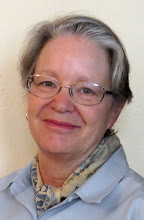Language of reverence
I've been studying up on podcasting these past few days, since we're about to go into the podcasting business ourselves. I've been listening to my colleagues' sermons which are currently available. Many of the podcasters are our younger ministers; people whose names I've never heard and whose youthful voices suggest a GenX or GenY heritage. It's been a pleasure to hear my young colleagues; it's not something an old lady minister gets to do very often. (If you want to hear a few, go to the directory of UU Podcasters at: http://www.geocities.com/scarcrest/uu_podcasts.html)
Several sermons have discussed or alluded to the flurry of a few years ago about using a Language of Reverence in UU'ism. I'm a big fan of this movement, as I discovered in the 1990's that my assumptions about the faith and practices of my congregation were in error. Having come 10 years previous to a congregation that had always been Humanist and Atheist, but in which the younger people who comprised the search committee wanted to explore "spirituality", I had endured the slings and arrows that many young ministers endure when they accept such an invitation. In the end, we'd settled into a truce, where I sometimes mentioned God from the pulpit and nobody walked out, and they (most of them) were willing to use "spiritual" words in hymns and affirmations. Then I came down with cancer, and went abruptly on sick leave. I got tons of cards, which was wonderful; cards from members, cards from people in my old church, cards from colleagues and people in the community. I got a new respect for the healing power of cards. But the shocker was this: In a sizable minority of those cards the senders promised to pray for me. And a lot of those pray-ers came from my church. Some of them were people I had assumed were Atheists and Humanists, since they had belonged to the church for decades. oops. (But they'd never mentioned prayer before!) It was a somewhat prolonged but ultimately positive drama in my life, and I returned to ministry changed in a number of ways. One of them was that I wanted to check my assumptions about where people were theologically and "language" wise. I started experimenting with prayer, with longer meditation, with more specifically theological sermons, with suggesting that we give thanks before meals. I began telling them about my prayer. I didn't find any of this easy. As a born UU, I've never spent much time around languages of reverence or groups that routinely use them. I had to go "take lessons" from interfaith colleagues. I felt self conscious, "pious", and awkward. As a career veteran of the "spirituality" wars, I found that I had some PTSD to deal with from old battles...PTSD that was silencing even the most authentic and comfortable spirituality I possessed. It all felt very risky. Generally speaking, however, the response was positive. My church has grown, and I believe that it has more to offer more people than it did 2o years ago because of those risks. Now, when people light candles at sharing, they are likely to ask for the congregation's prayers. The Atheists and Humanists (and Buddhists) are still with us. It's clear that you don't have to believe in prayer or God or be sure of anything to be a part of the congregation. But we do use the language. And it has been a very good thing.



<< Home